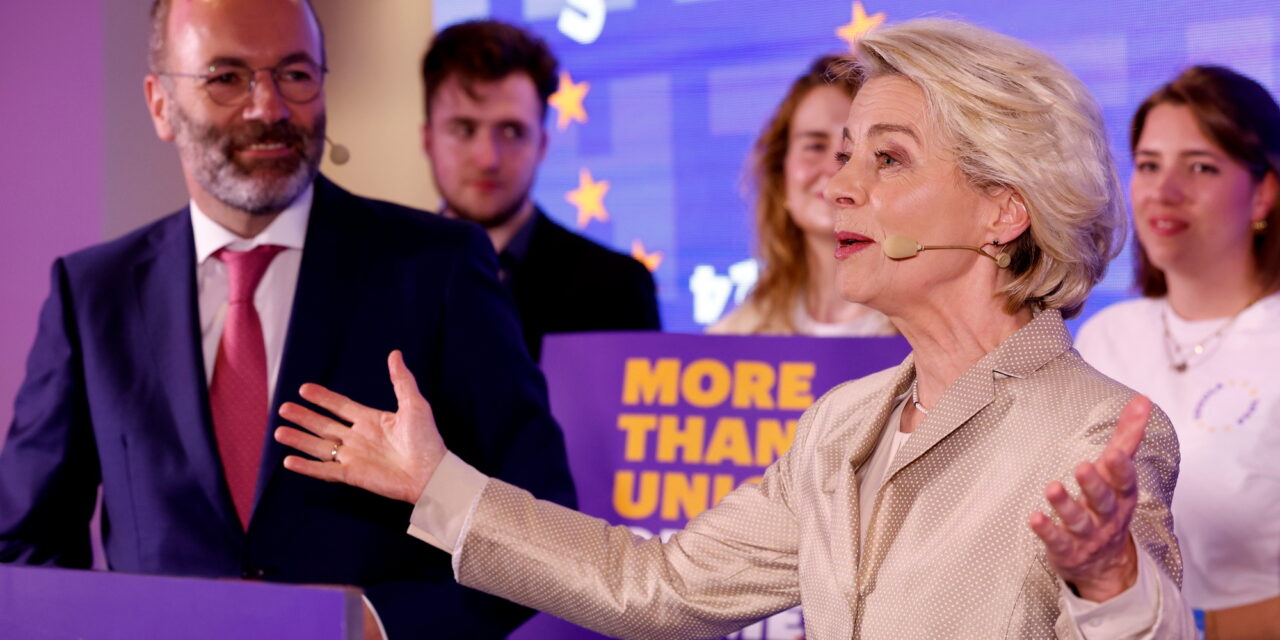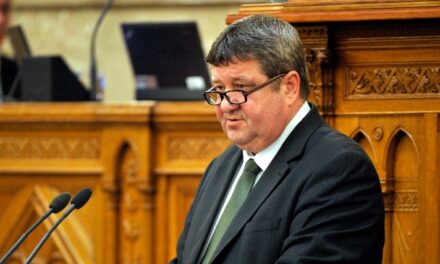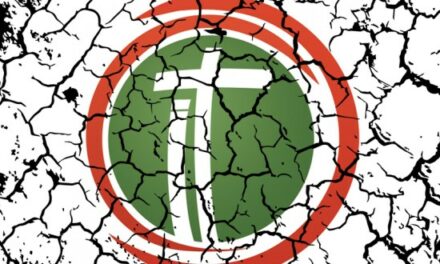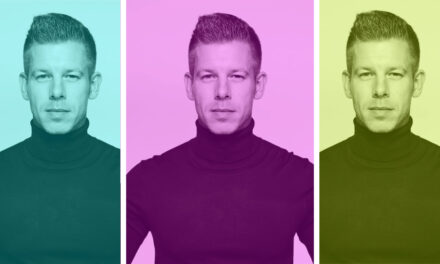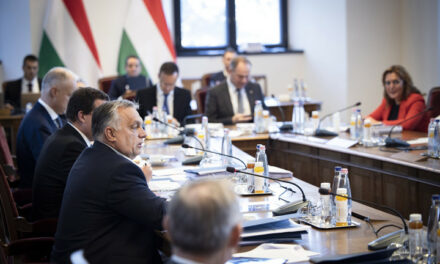According to Politico, a conservative triumph is unfolding in the most populous member states, pushing the whole of Europe to the right. Macron called early elections, Belgium's liberal prime minister resigned. Meanwhile, Ursula von der Leyen, President of the European Commission, politician of the European People's Party, is celebrating winning the European Parliament elections.
Center-right and "far-right" parties are expected to win in a number of member states, according to exit polls and last-minute surveys, writes Politico in connection with the most populous countries, notably Germany, France, Italy, and Spain.
In France, according to early estimates, the strong right-wing National Compact (RN) led by Marine Le Pen may win 32 percent or even more of the votes, which is a clear victory over President Emmanuel Macron - it is no coincidence that the head of state is fleeing to an early election before knowing the final, humiliating results.
The "extreme right" is also preparing to win in Hungary (probably Fidesz means the Brussels-style confusion), as well as in the Netherlands; In Greece and Bulgaria, the center-right wins with comfortable majorities.
According to early estimates, the European People's Party (EPP) can win 181 seats in the 720-member European Parliament, and it will be forced to decide with whom it will join, reports Mandiner .
In Spain, the conservative People's Party received the most votes
In Spain, the conservative People's Party (PP) received the most votes in the European Parliament elections on Sunday, according to the official non-final results published late in the evening.
The largest Spanish opposition party won 22 mandates with 34.18 percent of the votes, according to the results released when more than 99 percent of the votes were processed.
The Spanish Socialist Workers' Party (PSOE), which governs the southern European country in a minority coalition, came second with 30.19 percent of the vote, which means 20 mandates.
9.62 percent of voters voted for the Vox party, which is located to the right of the PP on the political spectrum, and thus won 6 mandates. 49.20 percent of eligible voters, 17.4 million voters, took part in the election, 11.5 percent less than five years ago.
After the election defeat, the liberal Prime Minister of Belgium announced his resignation
With 90 percent of the votes processed, the New Flemish Alliance (N-VA) overwhelmingly won the EP elections in Belgium on Sunday. At the same time, the support of Prime Minister Alexander De Croo's party, the liberal Open VLD, fell to around 8 percent, making the liberal party the big loser of the elections. De Croo announced his resignation fighting back tears on Sunday evening, but - as he promised - "they will be back".
Based on almost 90 percent of the votes processed, the N-VA became the big winner of the elections in Belgium. The New Flemish Alliance won 24.5 percent of the vote, according to unofficial data. At the same time, the big loser of the EP election was the liberal Open VLD. The support of the liberal party fell from 13.5 percent in 2019 to 8 percent, as a result of which
Prime Minister Alexander De Croo announced his resignation on Sunday evening, conceding his defeat.
In the Flemish part of Belgium, the N-VA is still the strongest party, increasing its support base to 24.5 percent. The Flemish Interest reached 22.7 percent, which is somewhat lower than the preliminary opinion polls.
According to preliminary data, the Vooruit party finished third with 13.5 percent.
FPÖ: We managed to reach the "stage goal"
"We succeeded in achieving the stage goal" on the way to the Austrian chancellorship, said Herbert Kickl, the president of the right-wing Freedom Party of Austria (FPÖ), following the publication of the exit poll results of Sunday's European Parliament (EP) election, which showed that the party had won the election in the country.
According to surveys by Institute FORESIGHT, ARGE Wahlen polling companies, APA news agency, ORF and Puls4 television stations, it finished first in the EP elections with around 27 percent of the FPÖ's highest result so far in the EP elections of 1996. The Austrian People's Party (ÖVP) and the Social Democrats (SPÖ) can count on the worst results in their history - roughly 24 percent and 23 percent, respectively. The Greens and the liberal NEOS can get about 10 percent support.
At the same time, Kickl announced that they would start the next phase, that is, the acquisition of the position of chancellor.
"We are getting our country back step by step," said Harald Vilimsky, the leader of the FPÖ list, speaking on Kickl's website.
Vilimsky also announced that on Wednesday he will hold a meeting with the leader of the French National Consolidation (RN), Marine Le Pen, about the expansion of the Identity and Democracy (ID) faction in the EP, keeping open the possibility of rejoining the recently expelled Alternative for Germany (AfD). .
"My goal is to form a large-scale pro-freedom reform alliance. Many, many parties are willing to do this," underlined Vilimsky.
Ursula von der Leyen: We won the European Parliament elections
"We won the European Parliament elections, the European People's Party (EPP) is the strongest representative group in the European Parliament," declared Ursula von der Leyen, President of the European Commission, a politician of the European People's Party in Brussels late on Sunday evening.
At the EPP results event, Ursula von Der Leyen reacted to the first mandate estimate for the seats in the newly composed European Parliament, according to which the European People's Party can win 181 seats, thus remaining the largest party group in the EP in the period between 2024-2029.
In his words, "today is a good day" for the EPP, since, he said, "we won the European elections, my friends." He emphasized that "a majority cannot be established" in the European Parliament without the EPP. "Together we are building a bastion against the extremism of the left and right. We will stop them," said Ursula von der Leyen, who was nominated by the EPP as the next president of the European Commission.
MTI / Mandiner / Civilek.info
Cover photo: Ursula von der Leyen, President of the European Commission, top candidate of the European People's Party (EPP) and party chairman Manfred Weber (b) at the party's results conference in Brussels on the evening of the European Parliament elections, June 9, 2024.
MTI/AP/Geert Vanden Wijngaert

